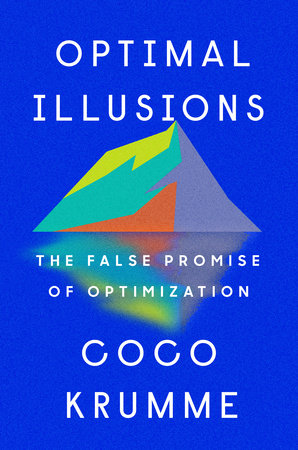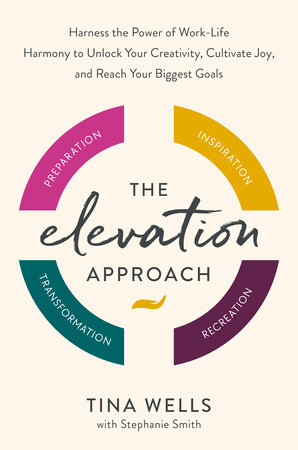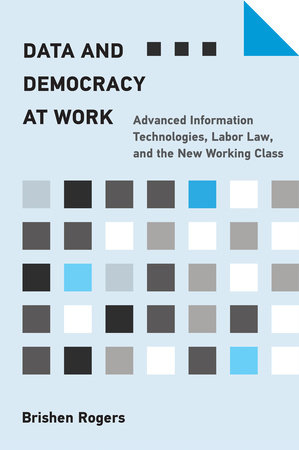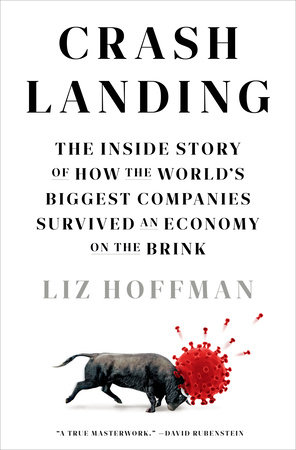Quick Summary
One Sentence Summary
“America’s Cheapest Family Gets You Right on the Money” by Steve and Annette Economides offers practical, family-tested strategies for living frugally without sacrificing quality of life.
Big Idea
The big idea of the book is that living frugally isn’t about deprivation; it’s about making smart choices with money, finding creative solutions to reduce expenses, and building a financially secure future for your family.
Five Key Ideas
- Budgeting Basics: Understanding and creating a family budget that works, focusing on needs vs. wants.
- Cost-Cutting Strategies: Practical tips for reducing everyday expenses, from groceries to utilities.
- Debt-Free Living: Techniques for avoiding debt and strategies for paying off existing debt.
- Frugal Fun: Ideas for enjoying life and creating meaningful family experiences without spending a lot.
- Long-Term Financial Planning: Emphasizing the importance of savings, investments, and preparing for the future.
Actionable Advice
- Start Small: Implement one new cost-saving strategy at a time; small changes can lead to big savings.
- Involve the Family: Make budgeting and frugal living a family affair, where everyone contributes ideas and efforts.
- Track Your Progress: Regularly review your budget and savings to stay motivated and make adjustments as needed.
About the Author
Steve and Annette Economides, often dubbed “America’s Cheapest Family,” are renowned for their practical approach to living frugally. They have shared their expertise in various media outlets and through their writings.
Read Next
For further insights into frugal living and financial management, consider:
- “The Total Money Makeover” by Dave Ramsey
- “Your Money or Your Life” by Vicki Robin and Joe Dominguez
- “The Simple Path to Wealth” by J.L. Collins
In Depth
Budgeting Basics
Crafting a Functional Family Budget
Steve and Annette Economides emphasize that a functional family budget is the cornerstone of frugal living. It’s not just about jotting numbers down; it’s about understanding your income, your necessary expenses, and distinguishing between needs and wants. They advocate for a proactive approach where every dollar is assigned a purpose.
The book provides a detailed example of how to set up a family budget. The Economides highlight the importance of involving all family members in the budgeting process. This approach not only ensures that everyone understands the financial situation but also fosters a sense of responsibility and teamwork. For instance, they share a story of how their children contributed to the family’s grocery budget planning. By involving the kids, they were able to make more informed and collective decisions about where to allocate funds.
The authors suggest categorizing expenses and setting limits for each category. They emphasize, “It’s not about how much money you make, but how you spend it.” This quote reflects their belief that careful planning and mindful spending can make even a modest income stretch further.
From personal experience, I’ve found that creating a budget requires honesty and sometimes, hard choices. It’s about prioritizing expenses and sometimes cutting back on non-essentials. The Economides’ approach resonates here – they don’t suggest living a life of deprivation, but rather making informed choices. It’s about finding a balance that works for your family, ensuring that needs are met while still allowing for some wants.
Tracking expenses is another crucial aspect. The authors suggest regularly reviewing the budget to understand where the money is going. This helps in identifying areas where you might be overspending. I’ve personally found this to be an eye-opening experience. Sometimes, it’s the small, recurring expenses that add up.
Lastly, the Economides talk about the importance of an emergency fund. They argue that a buffer is essential for unexpected expenses. This part of the book particularly resonated with me. Setting aside money each month for an emergency fund provides a sense of security and helps avoid falling into debt when unforeseen expenses arise.
Overall, the first key idea of “Budgeting Basics” in “America’s Cheapest Family Gets You Right on the Money” lays a solid foundation for a journey towards frugal living. It’s about understanding your financial situation, making informed decisions, and being prepared for life’s unpredictabilities. The authors’ practical advice, coupled with real-life examples, makes the concept of budgeting both accessible and achievable for families.
Cost-Cutting Strategies
Mastering Everyday Savings
Steve and Annette Economides in “America’s Cheapest Family Gets You Right on the Money” dive into various strategies for reducing daily expenses. They emphasize that small savings, when accumulated, can make a significant impact on your financial health.
One remarkable example from the book is their approach to grocery shopping. They suggest planning meals around sales and seasonal produce. This not only saves money but also ensures variety in meals. The Economides recount an instance where they fed their family of seven on a grocery budget of $350 per month. They achieved this by shopping sales, using coupons, and buying in bulk. Their strategy wasn’t just about buying the cheapest items; it was about finding the best value for their money.
Their mantra, “Shop smart to save big,” encapsulates their philosophy. This quote illustrates the importance of being an informed and mindful shopper. It’s not about compromising on quality; it’s about making strategic choices.
In my own experience, applying this principle has been a game-changer. By planning meals around what’s on sale and stocking up on essentials when they are discounted, I’ve seen a noticeable reduction in my grocery bills. It takes a bit of planning, but the savings are worth it.
The Economides also touch on saving on utilities. They suggest simple changes like switching to energy-efficient bulbs, unplugging devices not in use, and being mindful of water consumption. These might seem like small actions, but they contribute to reducing monthly bills.
Another cost-cutting strategy they discuss is DIY projects. From home repairs to gifts, they encourage readers to explore do-it-yourself options. This not only saves money but also adds a personal touch to things. I’ve found this particularly rewarding. There’s a sense of accomplishment in creating or fixing something by yourself.
Clothing is another area where the Economides suggest being frugal. They advocate for buying quality items that last longer, opting for second-hand when possible, and even learning basic sewing skills for minor repairs. This approach not only saves money but also promotes sustainability.
Their overall message is clear: cutting costs doesn’t mean living a lesser life. It’s about making smart choices, being resourceful, and appreciating what you have. By implementing these strategies, families can reduce their expenses without feeling like they’re constantly sacrificing.
The second key idea of “Cost-Cutting Strategies” provides practical, actionable steps for families looking to save money in their day-to-day lives. Steve and Annette Economides demonstrate that with a bit of creativity and effort, living frugally can be both fulfilling and financially rewarding.
Debt-Free Living
The Road to Financial Freedom
In “America’s Cheapest Family Gets You Right on the Money,” Steve and Annette Economides tackle the challenge of avoiding and eliminating debt. They firmly believe that debt-free living is not just a financial goal but a lifestyle choice that leads to financial freedom.
One compelling example they share involves using the “snowball method” to pay off debts. This method involves listing all debts from smallest to largest, regardless of interest rates. The focus is on paying off the smallest debt first while making minimum payments on the others. Once the smallest debt is cleared, the amount that was being paid on it is added to the payment for the next smallest debt. The Economides describe this process as “a snowball rolling downhill, gathering momentum.” They explain, “As each debt is paid off, you have more money to apply to the next one.”
The authors emphasize, “Debt is a choice, not a requirement.” This quote underlines their belief that while some debt may seem unavoidable, there are always choices and strategies to either avoid it or pay it off quicker.
From personal experience, adopting a debt-free mindset changes the way you approach finances. It encourages living within your means and being more mindful of spending. It’s a shift from instant gratification to long-term financial health.
The Economides also highlight the importance of an emergency fund as a key strategy to avoid debt. They suggest saving at least three to six months’ worth of living expenses. This fund acts as a buffer against unexpected costs, reducing the need to rely on credit.
Another strategy they propose is using cash instead of credit cards. They argue that spending cash feels more real and helps control impulse purchases. This resonates with my own experience; using cash makes me more aware of my spending and helps stick to my budget.
The book also discusses the significance of distinguishing between needs and wants. The Economides advocate for a thoughtful approach to spending, focusing on what’s essential. They encourage readers to ask themselves, “Is this a want or a need?” before making a purchase.
Lastly, they touch on the importance of teaching children about debt. They believe that instilling a debt-free mindset from a young age sets the foundation for financial responsibility in the future.
The key idea of “Debt-Free Living” in the book is a powerful call to action. It provides readers with practical tools and strategies to not only tackle existing debt but also to prevent future debt. Steve and Annette Economides show that living debt-free is not an unattainable dream, but a realistic and liberating goal.
Frugal Fun
Enjoying Life on a Budget
“America’s Cheapest Family Gets You Right on the Money” by Steve and Annette Economides doesn’t just focus on saving money; it also delves into how families can enjoy life without breaking the bank. The authors advocate that fun doesn’t have to be expensive to be memorable.
A detailed example from the book is their approach to vacations. Instead of expensive trips, they suggest alternatives like camping, staycations, or exploring local attractions. They share an instance of a family vacation where they camped and engaged in outdoor activities. This not only saved money but also provided quality family time and unique experiences. The Economides note, “The best things in life aren’t things, they’re experiences.” This quote encapsulates their philosophy that joy and fulfillment come from experiences, not material possessions.
In my own life, adopting this mindset has led to more creative and meaningful leisure activities. It’s about being resourceful and valuing experiences over extravagance.
The book also discusses celebrating holidays and special occasions frugally. The Economides suggest homemade gifts, potluck dinners, and focusing on the meaning of the celebration rather than the commercial aspect. They emphasize the value of togetherness and making memories.
For daily entertainment, the authors propose activities like game nights, outdoor sports, and community events. These not only provide free or low-cost entertainment but also strengthen family bonds.
Another aspect they touch on is hobbies. The Economides encourage picking up hobbies that are not only enjoyable but can also be cost-effective, such as gardening, cooking, or crafting.
They also advise being on the lookout for discounts and deals for entertainment options like movies, museums, or amusement parks. Planning and looking for the best deals can make occasional splurges more affordable.
The key idea of “Frugal Fun” in the book is an inspiring reminder that living on a budget doesn’t mean you can’t enjoy life. It’s about finding joy in simple pleasures, being creative, and valuing experiences over material things. Steve and Annette Economides demonstrate that with a bit of imagination and planning, families can have plenty of fun without overspending.
Long-Term Financial Planning
Building a Secure Future
In “America’s Cheapest Family Gets You Right on the Money,” Steve and Annette Economides emphasize the importance of long-term financial planning. They advocate that being frugal isn’t just about saving money in the short term; it’s also about securing a financially stable future.
A pivotal example from the book is their approach to retirement savings. The Economides stress starting early and consistently contributing to retirement accounts. They share their own practice of setting aside a portion of their income for retirement, regardless of their earnings at the time. This disciplined approach, they explain, has a compounding effect over the years. The authors state, “Saving for retirement isn’t about the amount; it’s about the habit.” This quote highlights their belief that consistency, no matter how small the amount, is key in building a retirement fund.
In my personal financial journey, adopting this principle of regular savings, even in small amounts, has been crucial. It’s a long-term commitment to future security.
The book also discusses the importance of having a diversified investment portfolio. The Economides suggest not putting all your eggs in one basket and understanding the basics of different investment options. They advocate for educating oneself about investments and seeking professional advice when needed.
Another aspect of long-term planning they cover is insurance. They emphasize the importance of having adequate health, life, and property insurance to protect against unforeseen circumstances. This ensures that an emergency doesn’t derail your financial stability.
The Economides also talk about planning for children’s education. They recommend starting savings plans early and exploring scholarships, grants, and community college options to reduce education costs.
Homeownership is another topic they address. The authors suggest buying a home within your means and focusing on paying off the mortgage early. They share their experience of making extra payments and how it significantly reduced their mortgage term and interest.
Estate planning is also touched upon. The Economides highlight the importance of having a will and making arrangements to ensure your assets are handled according to your wishes.
The key idea of “Long-Term Financial Planning” in the book underscores the necessity of looking beyond the present and preparing for the future. It’s about creating habits that ensure financial health and security in the long run. Steve and Annette Economides provide practical advice and strategies to help families not just survive but thrive financially in the long term.
Actionable Advice
- Budget Monthly: Start with a detailed monthly budget. Track income and expenses.
- Grocery Planning: Plan meals around sales and buy in bulk. Use coupons.
- Reduce Utilities: Switch to energy-efficient bulbs and unplug unused devices.
- DIY Projects: Tackle home repairs and gifts yourself. Learn basic skills.
- Buy Quality Clothing: Choose long-lasting items. Consider second-hand.
- Snowball Debt: Pay smallest debts first, then roll payments to the next.
- Emergency Fund: Save for at least three to six months of expenses.
- Cash Over Credit: Use cash for daily expenses to control spending.
- Frugal Fun: Opt for low-cost entertainment like game nights and local events.
- Homemade Gifts: Create gifts instead of buying. Focus on experiences.
- Retirement Savings: Start early, contribute consistently, even in small amounts.
- Diversify Investments: Spread out investments. Seek advice if needed.
- Adequate Insurance: Ensure proper health, life, and property insurance.
- Education Savings: Start early and explore scholarships and grants.
- Pay Off Mortgage: Buy within means and aim to pay off early.
- Estate Planning: Draft a will and plan for asset distribution.
About the Author
Steve and Annette Economides, hailed as “America’s Cheapest Family,” are renowned for their expertise in frugal living and financial wisdom. Based in Arizona, they gained fame for their ability to feed a family of seven on a tight budget. Their journey began in the early 1980s, driven by the desire to manage their finances effectively without compromising on quality of life. They married in 1982, with a remarkably low-budget wedding, setting the tone for their future endeavors.
The Economides are authors of several books, including “America’s Cheapest Family Gets You Right on the Money” and “Cut Your Grocery Bill in Half with America’s Cheapest Family.” Their work primarily focuses on budgeting, debt-free living, and practical savings strategies. They believe in living within one’s means, prioritizing savings, and making informed financial decisions. Their philosophy centers around the idea that frugality isn’t about deprivation but about making smarter choices to achieve financial stability and freedom.
Steve and Annette’s approach has been featured in numerous media outlets, solidifying their reputation as experts in personal finance. They continue to inspire and educate individuals and families on effective money management through their books, workshops, and speaking engagements.
Read These Next
You might like these similar books
- “The Total Money Makeover” by Dave Ramsey
- “Your Money or Your Life” by Vicki Robin and Joe Dominguez
- “The Millionaire Next Door” by Thomas J. Stanley and William D. Danko
- “Rich Dad Poor Dad” by Robert T. Kiyosaki
- “I Will Teach You To Be Rich” by Ramit Sethi
FAQ
1. What is the main focus of the book?
The book focuses on practical strategies for saving money and living frugally without sacrificing quality of life.
2. Who are the authors?
The authors are Steve and Annette Economides, known as “America’s Cheapest Family.”
3. Is the book suitable for large families?
Yes, the authors provide tips that are particularly useful for large families.
4. Does the book include budgeting advice?
Yes, it offers detailed guidance on creating and sticking to a budget.
5. Are there tips for saving on groceries?
Absolutely, the book has extensive advice on reducing grocery bills.
6. Can singles or couples without kids benefit from this book?
Yes, the principles are applicable to individuals and couples as well.
7. Is the book only about cutting costs?
No, it also covers topics like debt-free living, long-term financial planning, and enjoying life frugally.
8. How practical are the tips provided?
The tips are very practical, derived from the authors’ real-life experiences.
9. Does it cover topics like investments and retirement?
Yes, the book touches on investments, retirement savings, and long-term financial security.
10. Is the book easy to understand for financial beginners?
Yes, it’s written in simple language, making it accessible for beginners.







